How do domestic hot water systems work?
Domestic Hot Water (DHW) systems heat up cold water from the inlet and deliver it to taps, faucets, showers, and other systems where hot water is required. Some systems store the heated water in a cylinder for later use. Most houses have a combination boiler that combines into one unit instantaneous hot water for the taps and heating for the radiators.
There are a number of reasons why your hot water does not get hot enough and it also depends on the type of heating system you have. Causes include everything from seasonal temperatures, water flow rates to faulty boiler parts. Some issues you will be able to fix yourself while others will need a gas engineer to resolve.
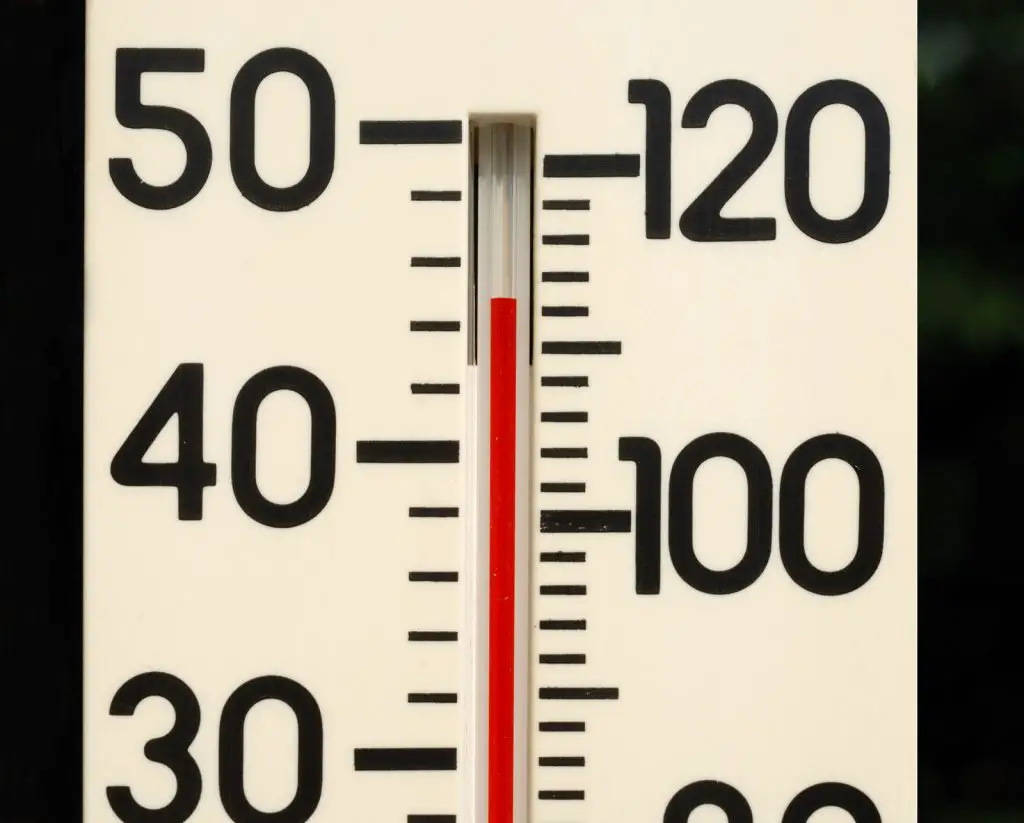
Causes of heating working but not hot water
We look at the main causes and also give you tips to fix these issues before you call an engineer.
Faulty boiler parts
If your hot water comes from a combination boiler, the plate heat exchanger which heats the water for the taps can become blocked with limescale and will need cleaning or be replaced.
If you have a hot water cylinder, faulty cylinder thermostats could be the cause, or sludge build up within the cylinder which reduces heat transfer to heat your water.
No water coming out of hot tap
If your central heating is working fine but having issues with hot water, the likely cause could be one of two things: a faulty diverter valve – run a hot tap for 10 minutes and check if the central heating system is warm but not the hot tap, this is the reason. Secondly, the plate heat exchanger is blocked up with sludge or debris, especially without a boiler filter.
If no hot water comes out of one tap or the shower, the reason could be a clogged up pipe to that tap – from limescale or other minerals; or there may be an airlock in that branch of pipework. This can happen when work has been done on any part of the system.
Hot water only works when heating is on
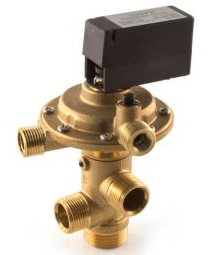
In a combi boiler, a faulty diverter valve can mean hot water only works when the heating is on. This is obviously not good in summer when you only need hot water and not heating. The diverter valve directs where the hot water goes – either to the taps or the radiators. You normally notice this fault in the summer.
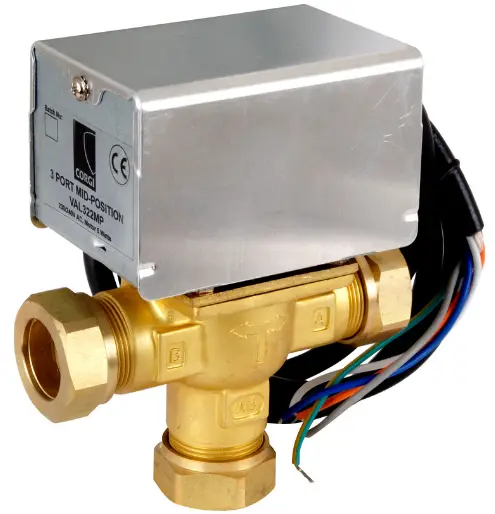
A faulty motorised valve may be the culprit in a heating system that has a storage cylinder. Similar to a diverter valve, this directs the hot water to the radiators or the cylinder. This valve may need to be replaced. A qualified gas engineer should be able to pinpoint and fix the problem.
Seasonal temperatures
Sometimes there is nothing wrong with the boiler but it’s the season that affects the water temperature. The combi boiler is designed to increase the water temperature by 40⁰C from the cold mains.
In the winter months, the groundwater temperature is colder so the boiler raises it by 40⁰ as it should, but it feels colder than in summer simply because the summer water temperature in the mains can be as high as 19⁰ whereas in winter it can be as low as 2⁰.
Wrong sized boiler for the property
A boiler may be too small for the size of the property or the number of people in the household who use water at the same time. The system could be too small for the demand for hot water it receives and it cannot heat the water up quick enough.
If you find your boiler isn’t suitable for your needs, you can get a free quote for a brand new boiler from boilerguide by clicking below:

Thermostat set too low
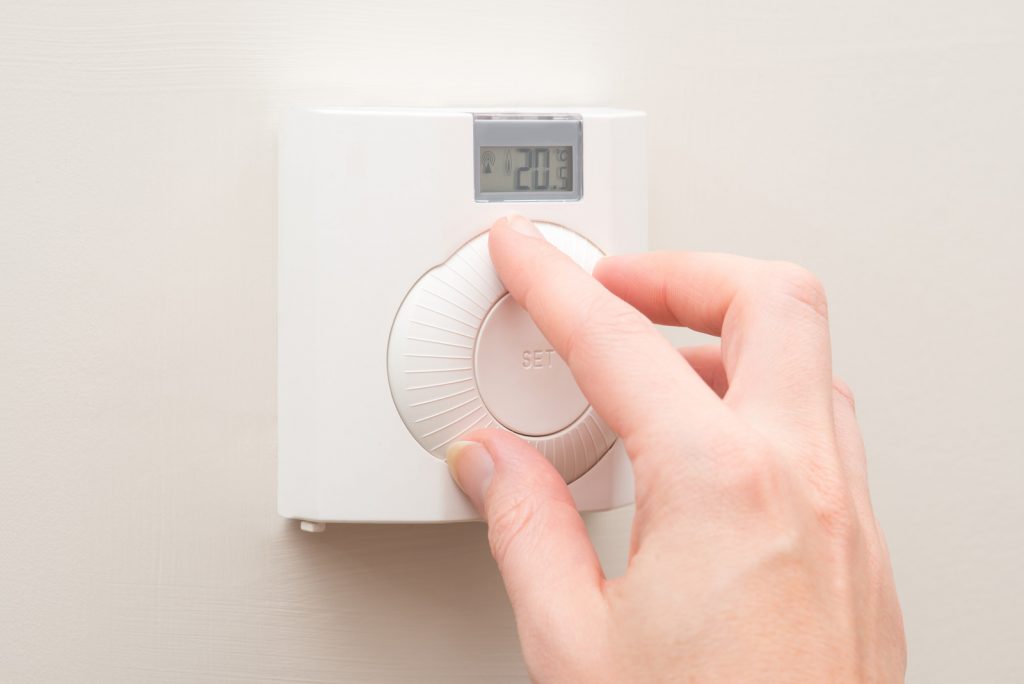
If the water isn’t hot enough, it could be easily fixed by checking the hot water control on the boiler. Check the water temperature setting on the boiler itself, this could be set too low. If you are getting only lukewarm water, try turning the setting to maximum.
Faucets and taps causing hot water to become cool
Mixer taps and shower mixers especially those that have a single cartridge have in them rubber O rings that can wear out, so the cold water can cross over into the hot side. The fix for this is to replace the cartridge with a new one which should solve the problem.
If you want to use the services of a plumber, check out the full house service offered by HomeTree on the link below:
Check water flow through the boiler
The flow of water through the boiler may be going too fast. Boilers are designed to heat water optimally at certain flow rates stated as litres per minute l/m. Different-sized boilers can handle differing flow rates.
Maybe the water flow rate is too great for the boiler you have installed. You should call an engineer who will check the water flow rate and if it’s going too fast, may be able to adjust it down when it goes into the boiler so the boiler has more time to heat the water up.
If the boiler shows it’s heating the water to a high enough temperature, but you still feel the temperature isn’t hot enough, you can try to adjust the flow of water down to a particular hot tap, say, in the kitchen sink. You don’t need to adjust anything on the boiler.
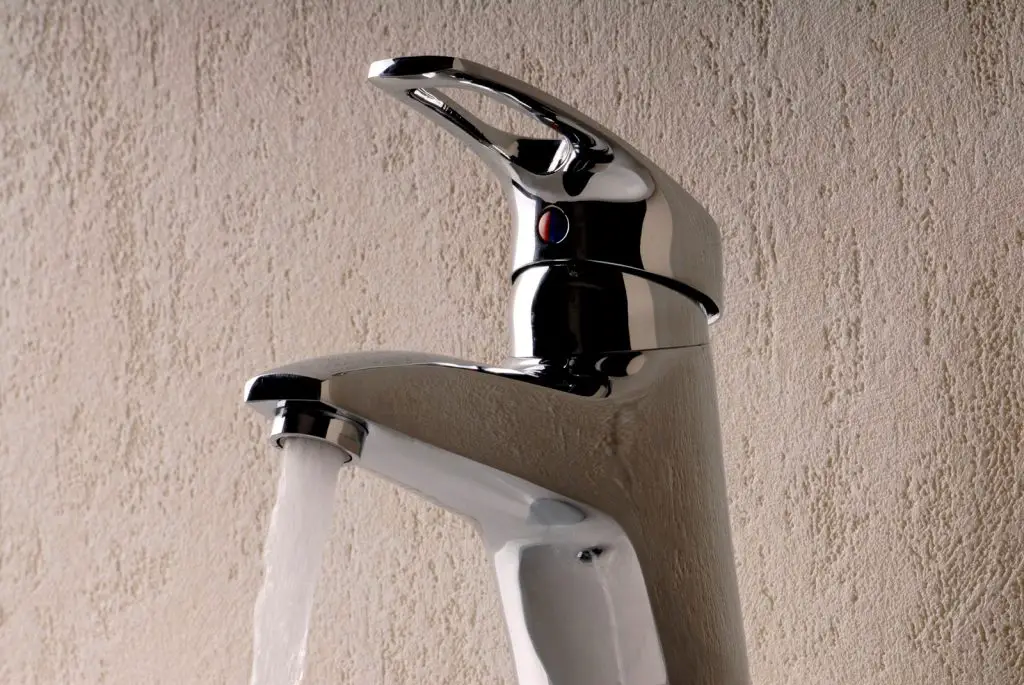
With the slower flow of water to a particular hot tap, it should raise the temperature of the water. You can usually find a valve on the inlet pipe to the hot tap and turn this to slow the flow. This will mean the heat exchanger has more time to heat the water and so give you hotter water.
It is usually only the kitchen sink hot tap where you want hotter water, the bath and basin temperature can become too hot to bathe and wash in.
Another way to get hot water quickly is after turning the tap on to let the boiler fire up and then slow the tap rate down so it’s running slowly, i.e. partially close the tap so it’s not at full flow, and this will give the boiler more time to heat the water.
You use less water this way and get hot water quicker too.
An annual homecare plan from HomeTree can help give you peace of mind with this.
*The information in this article should be used for general guidance only and not as financial or health advice. Full details are on the link in the footer to our disclaimer page. Always discuss your requirements with a competent and suitably qualified professional before undertaking any work.
Affiliate disclosure
Heatology.co are participants in a variety of affiliate schemes which help fund and run this website, visitors who follow our links and purchase a product may earn Heatology.co a commission. The money we make from affiliate marketing costs you nothing but keeps us online, so thank you for your continued support!
